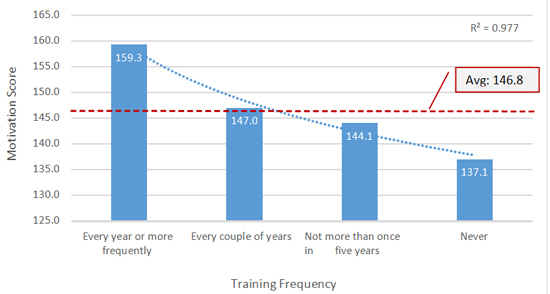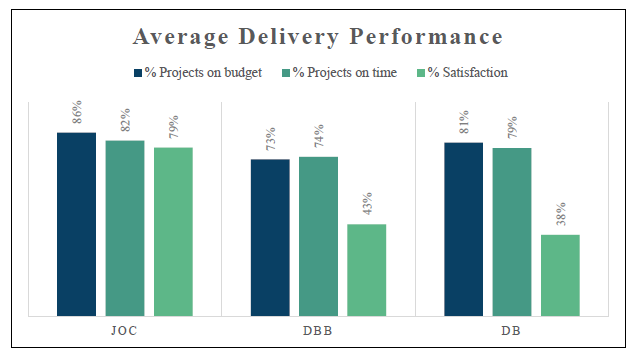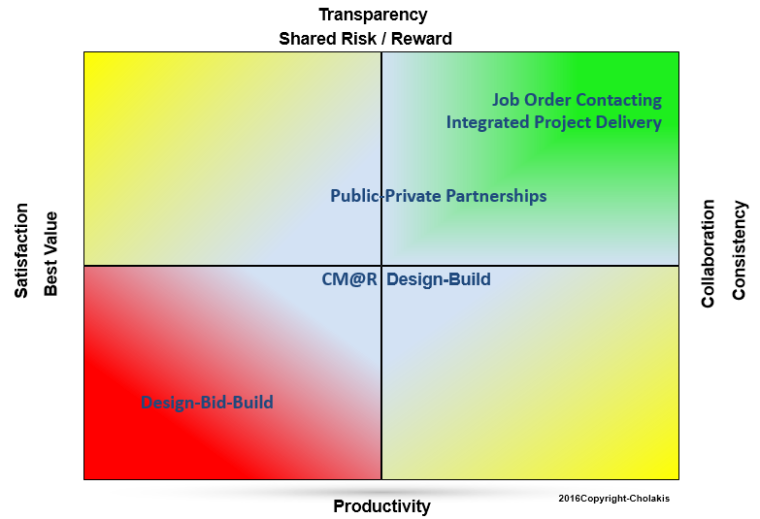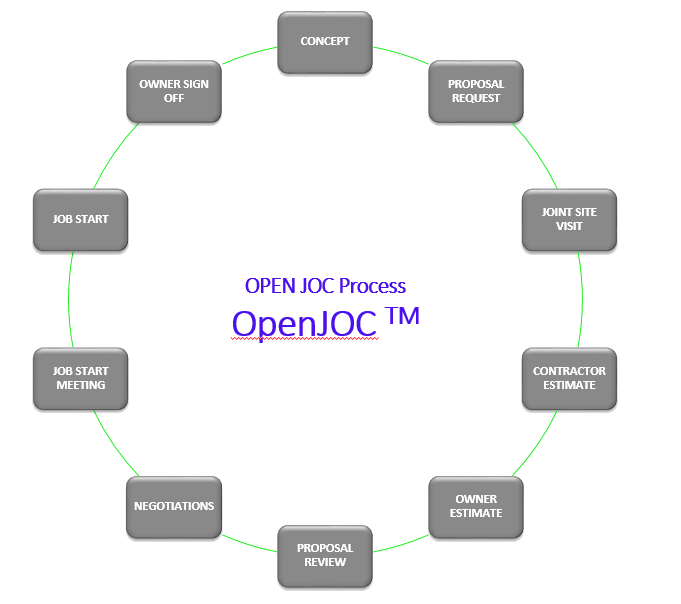Job Order Contracting – JOC – delivers greater numbers of quality projects, on-time and on-budget projects, as well as higher overall satisfaction levels than “traditional” construction delivery methods such as design bid build, design build, CM@R, etc. For this reason, the top 5% of Owners and Contractors depend upon JOC for horizontal and vertical renovation, repair, and minor new construction.
However, not all Owners and Contractors are ready for job order contracting. JOC requires higher levels of transparency, collaboration, motivation, and training than less productive traditional construction delivery methods. It also requires shared/risk reward and common terms, definitions, and data architectures. Many of these characteristics are foreign to Owners and Contractors sole experienced with arcahic and unproductive processes and outcomes associated with low-bid procurement and dependent upon excessive change orders to complete construction projects.
Leadership and training versus excessive management and control are common with job order contracting. In fact, on going training and continuous improvement are requirements for all LEAN construction delivery methods (job order contracting – JOC, integrated project delivery-IPD, etc.)
Studies have demonstrated that ongoing training and the selection of the construction delivery method are directly linked to motivation, as well as overall outcomes. For example the below chart clearly demonstrates that more frequent training leads to higher levels of motivation (2016, Moriarty, T.)





